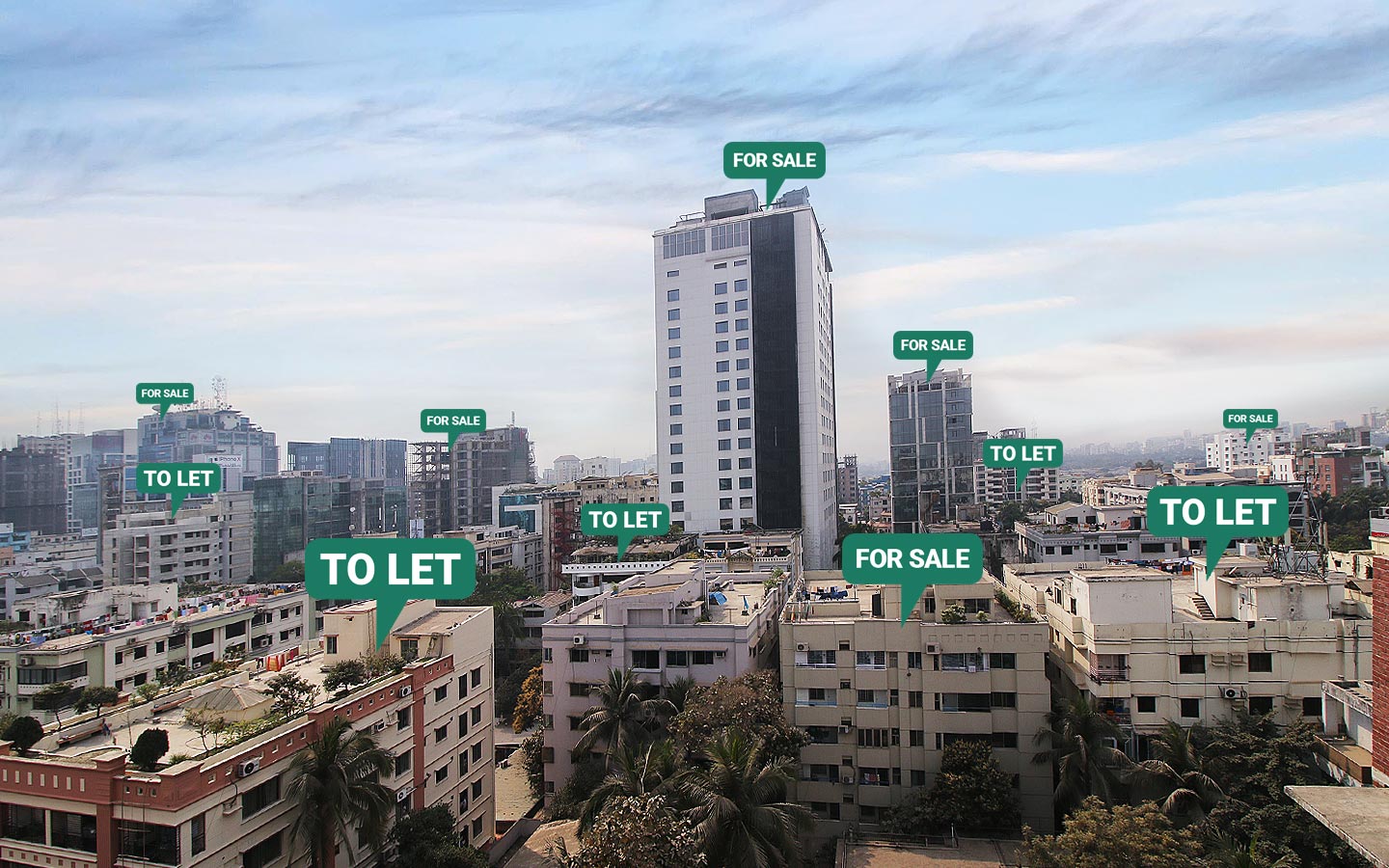Bangladesh’s property market has been on a roll ever since the beginning of 2017. Especially so in the first half of this year, when more and more people are buying and selling their property. This increase in transactions in the real estate market is a reflection of Bangladesh’s economic development.
As the government introduces the national budget for the upcoming fiscal year, FY 18-19, and new regulations along with it, people are bracing themselves to see the budget impact on property market. But, before delving into how the national budget may affect the real estate sector, let’s take a quick look into the current status.
Present Condition of The Real Estate Market

The annual GDP growth rate of Bangladesh from last year was around 7.3%; is the highest growth rate in the past ten years. More importantly, the GDP of the country grew steadily since 2014. The growth rate increased every year. A relatively large portion of the country’s development comes from the real estate sector, which contributes around 8.24% each year.
Over the years, GDP per capita grew remarkably. At the end of 2017, it stood at 3,523 USD. (Source: Trading Economics). As income per capita increased, demand for property in Bangladesh grew as well, leading to more transactions in the property market. According to Real Estate and Housing Society of Bangladesh (REHAB), unsold apartments in Bangladesh have come down to 27,185 from a total of 35,000 properties.
Now that we know a bit more about the current condition let’s move on to what the budget for FY 18-19 means for Bangladesh’s real estate market.
Woe for Small Apartment Buyers

Many people start their real estate journey by purchasing small apartments; usually around 800 – 1,000 sq feet. These are also the most common apartment sizes in areas like Khilgaon, Mirpur, Mohammadpur, Malibagh, and Banasree. Until now, buyers of such apartments enjoyed the lowest VAT percentage rate compared to others. Flats up to 1,100 sq feet were under the 1.5% VAT bracket. However, during the FY 18-19 budget, tax on such apartments was increased to 2%. This came as a shock to many. People were not expecting a rise in the VAT percentage for smaller apartments. Real estate experts are fearing that this will discourage many newcomers from buying apartments, as they might decide to hold off until another change in regulation is introduced or save up for bigger apartments altogether. This could lead to many smaller apartments remaining unsold.
Lower VAT for Bigger Apartments

The government decided to encourage property buyers to go for bigger apartments in this year’s national budget. VAT percentage for flats between 1,101 sq feet to 1,600 sq feet has been lowered from 2.5% to 2%. This puts the VAT for such apartments on par with their smaller counterparts. As a result, people with higher incomes can buy bigger flats without having to worry about paying extra VAT. The change is being warmly welcomed as most often apartments between the size of 1,200 – 1,600 sq feet are what most people are looking for. Experts are hoping this will counteract the effects of increased VAT for smaller apartments, softening the budget impact on property market.
The percentage of VAT was kept unchanged for apartments that are bigger than 1,600 sq feet. Just like last year, buyers will have to pay 4.5% VAT during purchase. On the positive side, there’s no additional indirect tax. The hope is that people will continue buying apartments of this size. However, there is another aspect of the national budget that is sure to impact the buying decisions of multi-property owners. Owners who have properties with an aggregate area of eight thousand in a single city corporation will have to pay a surcharge of 10% as tax. Thus, creating a dilemma of whether this is the right time to invest in properties.
Good News for Government Employees

According to the national budget for the FY 18-19, government employees will receive a massive boon in the form of home loans. Each budget has seen the introduction of many new benefits for government employees. Even though the concept of a lenient home loan for government employees isn’t new, the degree of ease has undoubtedly increased. The regulation will allow them to get loans for either construction of houses or purchase of apartments more easily. Furthermore, they will get a special interest rate which will be much lower than those in another profession. The government will take care of the interest differential. Therefore, government employees will be able to make full use of these loans. This opens up a gateway for them to get more involved in real estate and continue buying apartments. Undoubtedly, it will be them who will be at the forefront of the upcoming real estate transactions.
Unfavorable Registration Cost

Not every apartment involved in buying & selling is brand new. Many of them are sold and resold now and again. While registration of the new properties hovered around 14% to 16% of the flat price, re-registration of old & used apartments will have an imposition of 2% VAT. Realtors and REHAB strongly demanded a reduction in both of them to ensure the growth of the real estate market. However, no such regulation was considered in this years budget. Economists are forecasting a higher purchase cost of apartments, especially for old & used flats, but are waiting to see the real budget impact on property market.
As the new regulation of the budget for FY 18-19 comes into effect, everyone is holding their breath to see how the budget impact on property market. It is yet too early to know for sure what the future holds. Be sure to keep a closer eye on Bangladesh’s best property blog to find out more.




